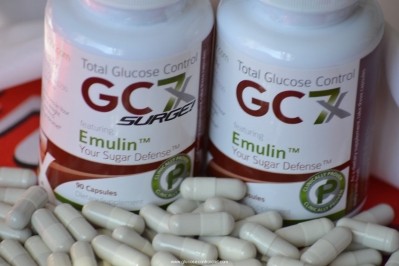Special edition: Diabetes
How do you sell healthy blood glucose to consumers?

But why is this, given that millions of Americans have been diagnosed with type 2 diabetes and millions more are at high risk of developing it?
One reason might be that a lot of consumers do not (yet) seem to realize that they can actively reduce their risk of developing type 2 diabetes though exercise and diet, notes Jeff Hilton, co-founder of marketing consultancy IMG.
“We have been working with a company developing supplements in this area and we have done a lot of focus group work, and while people that are diagnosed with diabetes or told they are pre-diabetic know about blood glucose, I’m not sure many other consumers understand it or even see diabetes as something they can do anything about.”
Consumers ‘just didn’t get’ the glycemic index
Meanwhile, attempts to engage with the public about blood glucose are often intertwined with concepts such as low-GI (glycemic index) diets, which consumers struggle with and scientists still wrangle over, he says.
“Low-GI was a hot trend for a while, but consumers just didn’t get it. And as for talking about metabolic syndrome [in which insulin resistance is a key component] forget it. ‘Healthy blood sugar’ is a better way to communicate with consumers, although it will still take a lot of education.
“But I do think there is a huge potential in this market as so many people are pre-diabetic.”
Datamonitor: This will need ‘a lot of heavy-lifting’ from marketers
Right now, however, says Datamonitor’s innovation insights director Tom Vierhile, references to ‘blood glucose’ on packaged foods remain few and far between.
“If you look at recent new product launches, diabetes is barely on the radar compared to issues like cholesterol. At this point in time, I just don’t see ‘controlling blood glucose’ as a claim that is going to stir up much interest. It looks kind of like a solution looking for a problem and would require a lot of heavy lifting marketing-wise to enable consumers to connect the dots.”
References to insulin sensitivity, meanwhile, may even turn shoppers off, he predicts. “I think average consumers may well tune out a word like ‘insulin’ unless they are diabetic.”
As for the ‘glycemic index’: “There was some hope after the low carb fad died down that low glycemic would rise to prominence, but we’re just not seeing that yet in the USA.”
79m Americans estimated to have pre-diabetes
Not surprisingly, National Starch (which markets its Hi-Maize resistant starch on a healthy blood sugar platform) is more upbeat, although ‘low glycemic’ is not a phrase senior business development manager Rhonda Witwer finds helpful.
“Reduced glycemic response in foods does not correlate to healthy blood sugar levels or reduced risk of diabetes. A low glycemic response can be achieved in a number of ways, including eliminating carbs entirely, or replacing them with indigestible polyols, fiber and resistant starch.
“It may be that how you get to healthy blood sugar levels may be more important than simply reducing the glycemic response.”
Meanwhile, the data linking glycemic load/index and type 2 diabetes risk is not convincing, she says, quoting from the 2010 Dietary Guidelines Advisory Committee’s January 2011 report: “Strong, convincing evidence shows little association between glycemic load and type 2 diabetes.”
Helps maintain healthy blood sugar levels
So what should marketers talk about?
“We have found that the claim ‘helps maintain healthy blood sugar levels’ is easy-to-understand, simple, medically accurate and can be scientifically substantiated”, says Witwer. “It also resonates with consumers.”
“Unfortunately”, sheadds,” insulin resistance and insulin sensitivity are not currently common terms for most consumers [except diabetics]. Doctors do not routinely test for these conditions, nor do they appear on medical recommendations. In fact, of the estimated 79m American adults with pre-diabetes, only 7.3 percent were aware they had it.”
Do we need functional foods or supplements to tackle pre-diabetes?
As for those arguing that the key to diabetes prevention is a better diet and lifestyle – and not supplements or functional foods – this is proving easier said than done, she observes.
“The number of overweight and obese people in this country is increasing, and even when a pre-diabetic condition is identified, the percentage of people who can make the commitment to permanent lifestyle change is relatively low.
“With the costs in human suffering and medical treatment associated with diabetes, we should be doing everything we can to meet this burgeoning challenge. Put another way, we can’t afford to wait to lose weight.
“Maintaining healthy blood sugar should be a lifelong goal and it is here that we see the use of Hi-maize in traditional foods as a replacement for high glycemic carbohydrate, particularly in such items as baked goods and pasta.
“In the situations where insulin resistance has progressed, we see Hi-maize functioning as a supplement because higher amounts will be required to support healthier blood sugar levels.”













